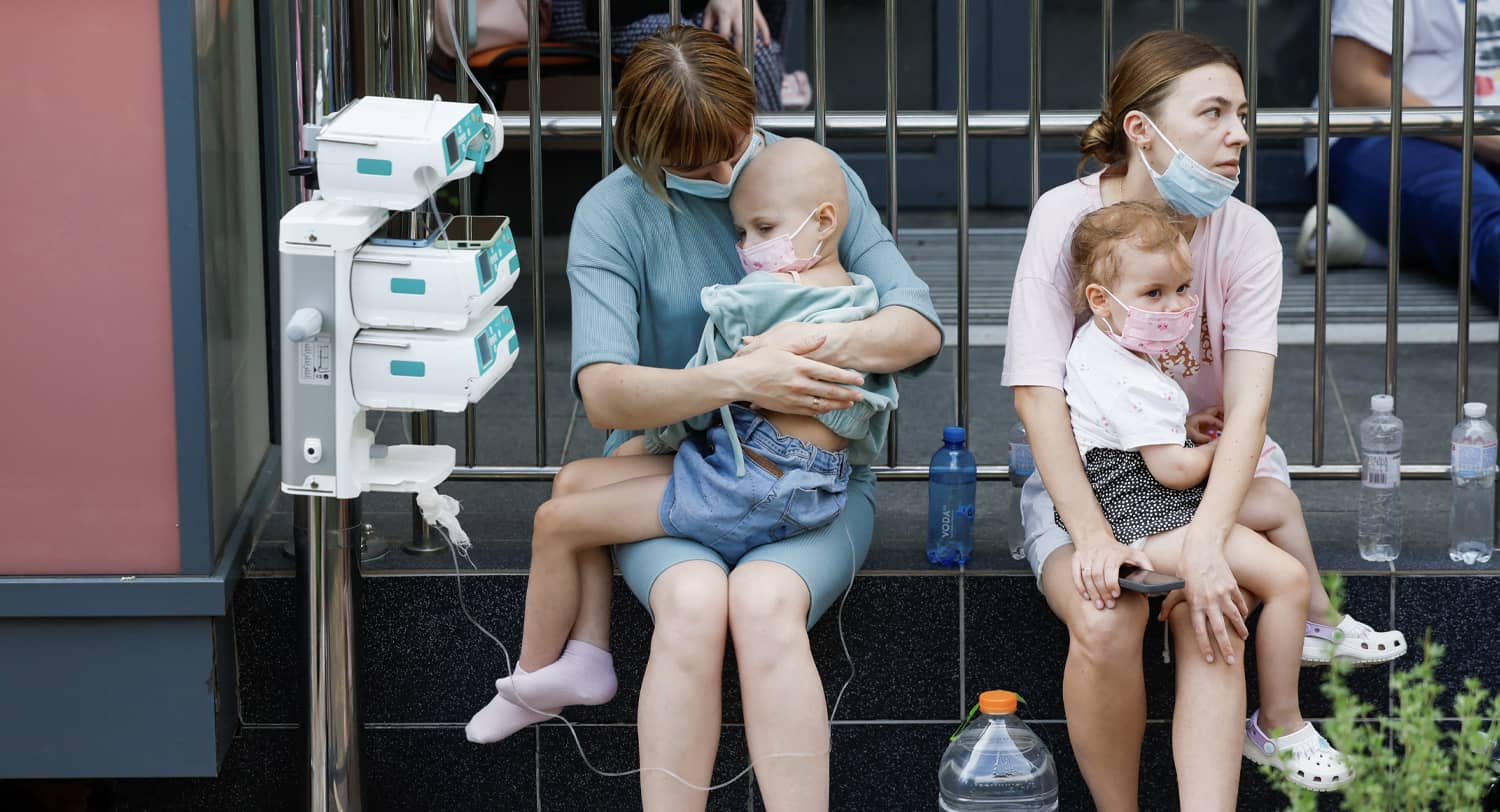On July 8, Russia launched a barrage of missiles that hit the Okhmatdyt Children’s Hospital in Kyiv, killing at least 38 persons. One missile demolished the ward which cared for child patients on dialysis. The explosion was so powerful that the top floor of the building collapsed; the shockwave and secondary shrapnel destroyed two other wards.
Ukrainians knew a terrible thing had happened but after the initial shock, there was no despair. The collective mood of determination could only be compared to two other days in our recent history. The first was the Maidan protests that started in February 2014, leading to the ouster of the Russian-backed autocrat Viktor Yanukovych; the second was the Russian invasion that began on February 24, 2022.
On the morning of July 8, in a taxi on my way to the office, the driver was compulsively watching Telegram channels displaying videos of Russian rockets landing. He kept asking the same questions: How is it still possible after two and a half years of war that they can so easily bomb a world-class oncological children’s hospital in the middle of the day, while the whole world is just watching? He wanted to find somebody to blame for the tragedy. He asked: Why aren’t we building our own long-range rockets and why haven’t we destroyed Russia’s airfields already? He kept bashing our government for not doing enough, and our air-defense folks for not being good enough.
Like everyone in Ukraine, the taxi driver knew we lack the means to respond to these attacks. Ukraine lacks an air force that can reach strategic targets within Russia. We no longer enjoy a nuclear umbrella, which would have protected our sovereignty and allowed us to live peacefully and develop our state, raise our kids, do business, and whatever else a normal people do. We used to have nuclear weapons but exchanged them for what turned out to be empty promises, namely, the Budapest Memorandum of 1994. The idea of non-nuclear proliferation will certainly win you a loud laugh in Ukraine if you try to pitch it seriously to someone.
After seeing mothers carrying their kids downstairs, with tubes from the medical equipment sticking out of babies’ bodies and staff carrying the equipment behind, I had questions too. How is it possible that Russians can do this to us? How can the civilized world allow something like this? What about the voices in the West advising us to surrender or explaining that Ukraine is too corrupt to be in NATO?
Later in the day I stopped at the hospital and spoke with a nurse. Previously she had worked as a crane operator at the Azovstal plant, the vast steelworks in Mariupol where a band of Ukrainian soldiers for several months defied Russian attacks. Her brother died three months ago fighting near Kupyansk, and her son voluntarily mobilized into the Azov regiment, which only months ago was allowed to draw upon American weapons. She had been standing in the middle of a room on the seventh floor when a blast wave threw her against the wall. She continued to clear rubble. She explained that now she is afraid to even come to work.
Russia is responsible for the deaths of Ukrainian children on July 8, but there are also more than a few enablers in the international arena. Some assist Russia consciously while others are just fools. The international institutions that were supposed to protect us, failed us miserably.
The mood in Kyiv today is one of anger towards National Security Adviser Jake Sullivan’s “escalation management” style of leadership. American policy relies on employing Ukrainian lives to compensate for incompetence and mistakes in national security committed over the years.
We often hear from the Ukrainian military this sentiment: America has betrayed us on three recent occasions. The first was in 2014, when the US failed to see any Russian military in Ukraine. The second was in 2022 when we were not provided adequate weapons before the invasion started and instead, Washington started pulling its embassy staff out of Ukraine. After the Russian invasion failed, President Biden suddenly discovered that Ukraine was still standing. When Ukraine started to advance on the battlefield, Kyiv was betrayed a third time because it was advancing “too fast.” Some officials in high places worried that Russia would use nuclear weapons, so they started staggering the pace of armament supply.
Western security policy has long been driven by fear, delusion, and weakness. How will today’s events look in history, the specter of a world just watching as Russian missiles hit Ukrainian cities? What message is Washington sending to countries like China, North Korea, and Iran? It’s time for the Biden administration to stop dithering and allow Ukraine to properly defend itself.

